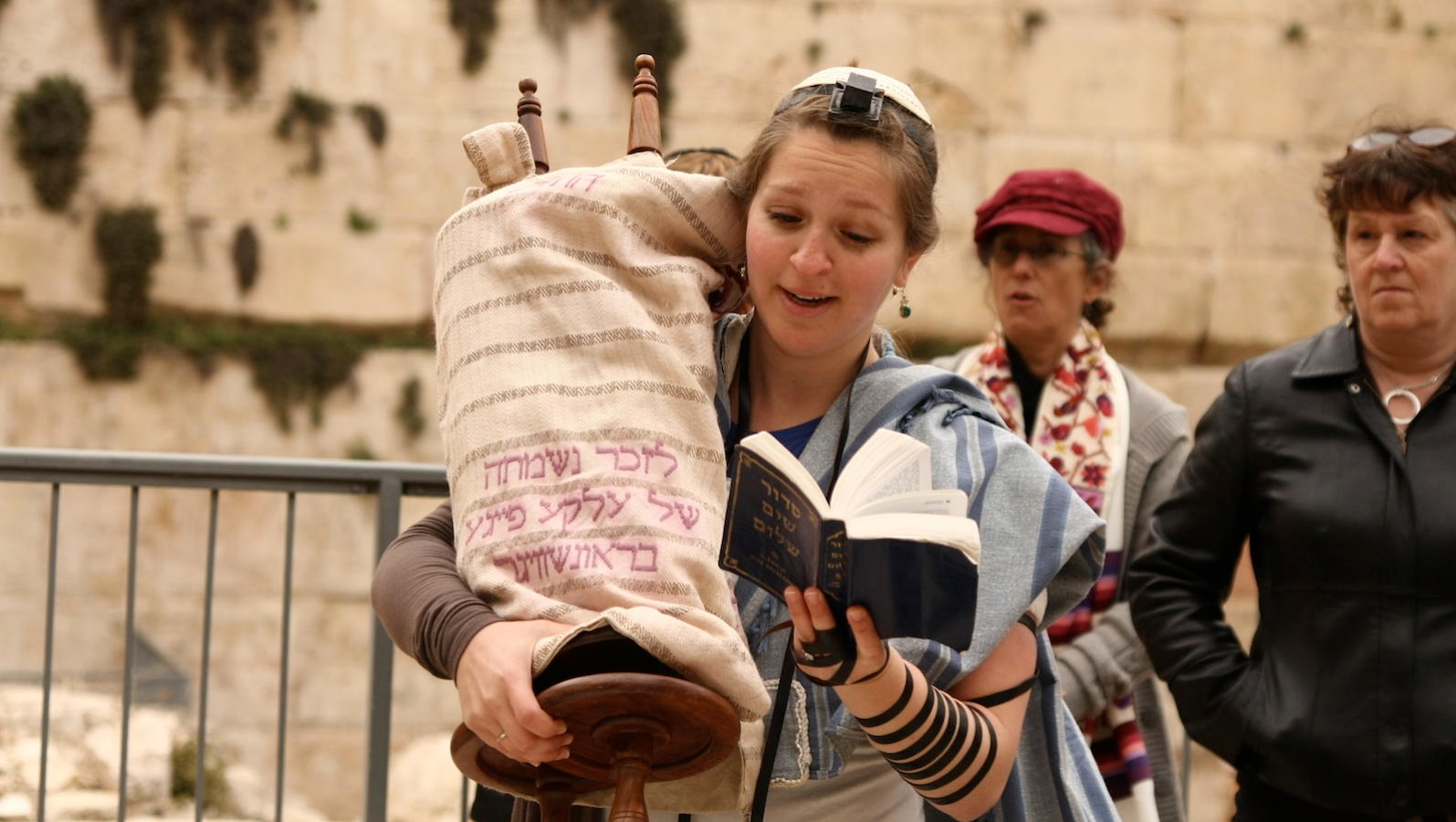Question: Why do Jewish men cover their heads, but Jewish women don’t?
–Alan, Baltimore
Answer: I have to quibble a little with your question, Alan. I’m guessing that you’ve seen Jewish men wearing yarmulkes, or kippot, and you haven’t seen women wearing them, so you’ve assumed that women don’t, as a rule, wear kippot. But that’s not actually true–go into any Reform or Conservative synagogue and you’re likely to see a fair number of women covering their heads.
Some women wear crocheted yarmulkes just like the ones worn by men. Others wear wire or beaded yarmulkes that are more feminine, and others cover their heads with scarves, hats, even headbands. Though these headcoverings may not look the same as the traditional ones you recognize, they are intended to serve the same purpose as the yarmulke on a man.
So what is the purpose of wearing a yarmulke? Covering one’s head is not a commandment found in the Torah or the Talmud. Instead, it’s a sign of reverence for God, a custom that became popular in the Middle Ages, and has stuck around since. Though some have suggested that covering one’s head is a way to remind oneself that God is always above, the primary function of a kippah today is to act as a sign of belonging to a certain group of people and of commitment to a certain way of life.
With your help, My Jewish Learning can provide endless opportunities for learning, connection and discovery.
Why is the kippah only worn by men in traditional Orthodox communities? In these communities all ritual clothing–such as a prayer shawl, a Hasidic stock coat, or a kittel–is only worn by men. Women are not considered obligated to perform the commandments associated with some of these garments, so they don’t wear any of them. However, in these communities, married women do cover their hair, usually with hats, scarves, or wigs. This goes back to a commandment hinted at in the Torah, and stated more explicitly in the Talmud and later rabbinic texts. It’s a law unrelated to the kippah custom.
As you can see, there’s a lot of head and hair-covering in Jewish life, for men and women alike, in Reform, Conservative, Orthodox, and other Jewish communities.
Hasidic
Pronounced: khah-SID-ik, Origin: Hebrew, a stream within ultra-Orthodox Judaism that grew out of an 18th-century mystical revival movement.
kippah
Pronounced: KEE-pah or kee-PAH, Origin: Hebrew, a small hat or head covering that Orthodox Jewish men wear every day, and that other Jews wear when studying, praying or entering a sacred space. Also known as a yarmulke.
Talmud
Pronounced: TALL-mud, Origin: Hebrew, the set of teachings and commentaries on the Torah that form the basis for Jewish law. Comprised of the Mishnah and the Gemara, it contains the opinions of thousands of rabbis from different periods in Jewish history.
kittel
Pronounced: KITT-ul, Origin: Yiddish, a white robe that men and some women wear during High Holiday services. White represents the purity we hope to achieve through our prayers on these holy days.



